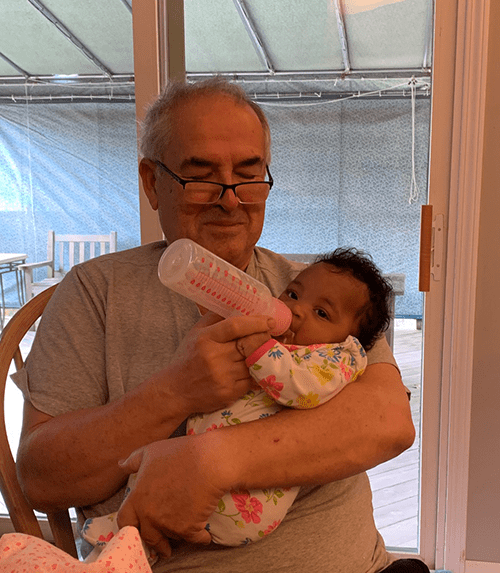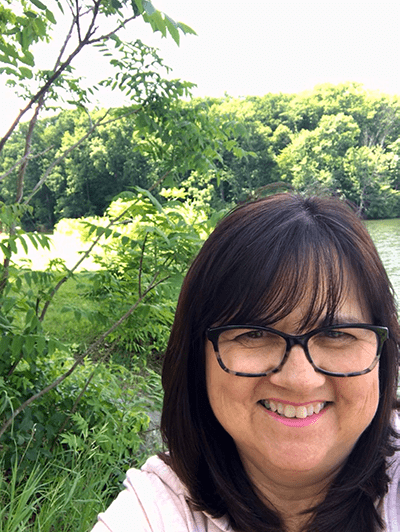
November 4th, 2020
Caregiving can be isolating and overwhelming in normal times.
But during the Covid pandemic, it is even more so, upending the routines of family caregivers and creating barriers to connecting with their loved ones. The National Alliance for Caregiving says caregivers today are at greater risk for health, emotional, financial and work-related problems as a result of Covid-related restrictions.
People who have shifted their office to their house and live with an older loved one who relies on them are reorganizing their workspace and their schedules. They can’t rely on senior centers as a way to get some free time for themselves and social time for a loved one. Some might be simultaneously caring for an older parent and a child, who is home all day because his school is closed.
Others may have deferred a nursing home placement for a parent who needs a higher level of care. Many have sent home a paid caregiver because of the fear of Covid infection. And paid caregivers may not come to work for the same reason.
The stressors are many.
As the Covid crisis drags on toward the end of the year, we asked local caregivers about the challenges they’ve faced in 2020 and how they are coping.
Dianne Kobylarz Singer, MPH
 Dianne Kobylarz Singer of Dexter has been working from home since the beginning of the pandemic. Her employer, the University of Michigan, closed her office in mid-March. Singer’s 89-year-old mother, who has dementia, lives with her and her husband.
Dianne Kobylarz Singer of Dexter has been working from home since the beginning of the pandemic. Her employer, the University of Michigan, closed her office in mid-March. Singer’s 89-year-old mother, who has dementia, lives with her and her husband.
Covid hit them hard, she says.
Singer kept visitors to a minimum – letting go of a caregiver who came to the house about a dozen hours a week so she could “keep our unit contained.”
Then Singer’s husband had to quarantine at home because he had been exposed to a coworker who came down with Covid.
That meant Singer had to do the heavy lifting on her own.
“That was probably the most difficult period, when you can’t count on your spouse for extra support and you worry about getting [Covid] yourself,” she says. Her son was home for a while but he left. Now, they are three again.
Working full-time at home has also created new challenges.
“I start my day by 7 or 7:30. Mom doesn’t get up until 10 or 10:30. I do an hour or two of caregiving, she naps, and I work a few more hours. The days are long. Instead of a normal 8-hour workday, I have a normal 12-hour workday,” she says. Fortunately, Singer’s brothers bring dinner once a week and she’ll visit her daughter’s house then.
Singer is trying to find an aide who can come into the house and help her mother, but it’s been tough to find people willing to come in. Plus, there’s a caregiver shortage that dates before Covid. Until she finds someone, Singer says, she isn’t allowing herself to feel guilty for letting her mother watch a classic movie for a few hours during the day rather than keeping her busy with a game or a photo album.
To protect her family from exposure to Covid, Singer orders food for delivery or curbside pickup – “I can’t count on one hand the number of times I’ve gone into a grocery store” – and orders dog food on Amazon.
Singer admits she’s more tired than usual, but she has strategies to make sure she’s ready for work and for caregiving.
“I’m into self-help, so I try to make sure I get at least 7 hours of sleep at night. I do yoga. I have my own mental health outlets. Eating healthy helps, too,” she says.
Jack Baker
 For Jack Baker of Ann Arbor, a veteran caregiver who has become the medical advocate for an older neighbor whose only child lives in California, Covid has meant filling in the gaps for paid caregivers who have come into contact with Covid infection.
For Jack Baker of Ann Arbor, a veteran caregiver who has become the medical advocate for an older neighbor whose only child lives in California, Covid has meant filling in the gaps for paid caregivers who have come into contact with Covid infection.
Baker has been a caregiver for his father-in-law, brother and wife. He considers himself lucky that he is semi-retired, or at least has control of his schedule.
In mid-March, Baker, 64, got a call from the neighbor’s overnight aide saying her husband had been hospitalized because of Covid and she could therefore not come to work.
“Our whole plan got ripped out underneath us and I became a primary caregiver for three to four weeks,” says Baker. “The Covid thing requires protocols. At the time, a group of aides was coming in to help, but that meant [my friend] was being exposed to all the people they were exposed to, so we went down to one aide.”
When the aide is not available, Baker goes to the house and helps prepare meals. He also serves as his friend’s medical advocate during doctor appointments and helps him with technology, like Zoom. The man is an attorney who still practices law, so video conferences are a lifeline of sorts. His work, says Baker, keeps him engaged.
“I live close by, so I see him five days a week, helping with all kinds of stuff. We bought him a new car so he can get out of the house and can independently get his walker in and out of the car,” says Baker.
“He has quite a few resources,” Baker continues. “But part of caregiving is that it is so difficult that even with the best resources it can be overwhelming and isolating. I’m not the one who’s always there, but part of caregiving is the yoke of caregiving — it’s a 24/7 thing. That’s where the burden is with caregiving: you never get a break.”
Baker stays busy both with independent entrepreneurial projects and his grandchild, the daughter of his brother, who died of cancer earlier this year.
To help him balance his life with his caregiving responsibilities, Baker stays in touch with a closed Facebook group of caregivers.
“One thing you learn is that the best resources are other caregivers. A lot of it is about how you deal with the stress of caregiving,” he says.
Lisa Jacques
 Before Covid, Lisa Jacques of Clinton Township relied on an adult day program both to keep her mother mentally engaged and to give herself a little personal space. Jacques hoped to find a part-time job, too.
Before Covid, Lisa Jacques of Clinton Township relied on an adult day program both to keep her mother mentally engaged and to give herself a little personal space. Jacques hoped to find a part-time job, too.
The adult day program closed, leaving Jacques as a full-time caregiver. Her mom lives with her and her husband, who is unable to work because of a medical condition. Her mom also has dementia and is a heavy smoker. During her time at the adult day program, she didn’t smoke as much.
“It hit me really hard as a caregiver. With my mother’s health challenges, I didn’t know what was going to happen,” says Jacques, 58. “Until Covid, my mom would go to the program a couple days a week. I started to see a difference in her: She enjoyed it, she enjoyed being around people her age and the activities. She perked up a little bit.”
A few weeks ago, Jacques got a call from the adult day program saying it would open with safety protocols in place.
“At that point I needed for that to happen for my own peace of mind,” says Jacques, the only child living in Michigan. “It’s been a long haul for me. Now I’ve got her back in the program full time and I’ve started looking for something part time during the day. This routine, as long as we can do it, is really beneficial for me and my mom.”
Covid, she says, has put a lot of stress on her family. Without the adult day program, she would consider finding a memory care facility for her mom, whose care needs have become harder to manage at home. Her husband helps where he can, but he has his own health challenges.
Jacques copes with the demands of being a solo caregiver using tips she learned in a pre-pandemic “Caregiver Survival” seminar led by dementia care expert Jill Gafner Livingston and sponsored by AgeWays (now being offered virtually).
“The tips were just like, wow. You think you have inappropriate thoughts, but she helped me think I’m not crazy or inappropriate,” she says. “You come to understand that only people who’ve been through this can understand, and the things you do to cope and get through the situation, you’ve got to laugh.”
Visiting parks and orchards and taking drives to look at the changing trees are another stress buster for Jacques and her husband.
Then there’s retail therapy.
“Yesterday, I went to Meijer. Not just once, but two times. I had a blast,” she laughs.
Source: National Alliance for Caregiving.